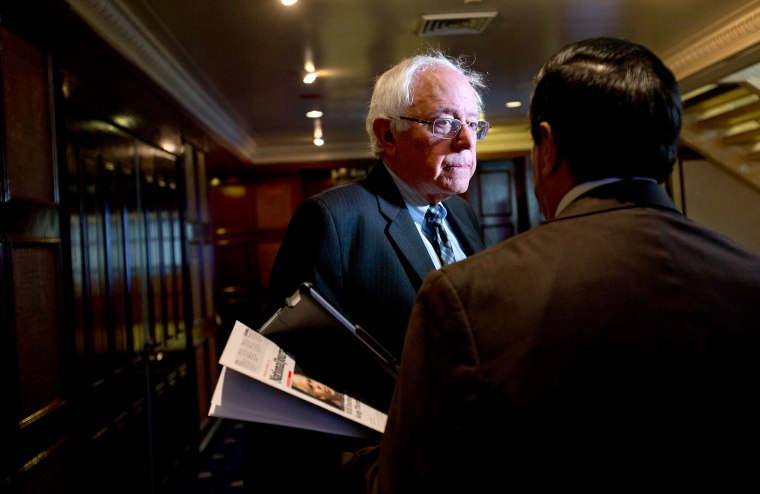If the 2016 presidential field doesn't include any outspoken progressives, then the U.S. Senate's only self-described socialist may step in to fill the void. Last week, Sen. Bernie Sanders, I-Vt., said that he would be willing to run for president if no one else with sufficiently left-wing views did so.
“Under normal times, it’s fine, you have a moderate Democrat running, a moderate Republican running,” he told the Burlington Free Press, a local paper in his home state of Vermont. “These are not normal times. The United States right now is in the middle of a severe crisis and you have to call it what it is.”
This is not the first time that Sanders has floated the possibility of running for president. During an October tour through the Deep South, he told the magazine In These Times, "I haven't ruled it out."
"I do think there needs to be a progressive voice in the presidential process," he said at the time.
He's not alone. Earlier this month, The New Republic's Noam Scheiber suggested that Sen. Elizabeth Warren, D-Mass. might enter the 2016 Democratic presidential primary, where she would serve as a progressive foil to the more centrist Hillary Clinton. The activist group PCCC (Progressive Change Campaign Committee) has seized on the idea, and is trying to use Warren's popularity to nudge other potential candidates further to the left on issues like financial reform and maintaining the welfare state.
A third-party presidential candidate running on a democratic socialist platform would be a long shot—to say the least—but it might be marginally less of a long shot than it was even a few years ago. American attitudes toward socialism are becoming gradually less negative, particularly among young people. That helps to explain why last week, city council candidate Kshama Sawant was able to become the first socialist to win citywide office in Seattle in at least a century.
But that doesn't mean that a socialist candidate would stand even a remote chance of winning the presidency any time in the next few years. And if he ran, it appears that Sanders' goal would not be to become president, but simply to force broader discussions of American capitalism, inequality and climate change during the campaign season.
"Anyone who really, really wants to be president is slightly crazy because this is an unbelievably difficult job given the crises that this country faces today," Sanders told the Burlington Free Press.
